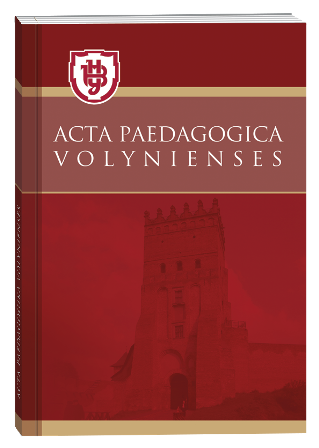ETHNOCULTURAL APPROACH TO THE FORMATION OF NATIONAL SELF-IDENTITY OF THE FUTURE PRIMARY EDUCATION SPECIALIST BY MEANS OF LANGUAGE
DOI:
https://doi.org/10.32782/apv/2023.4.3Keywords:
national self-identity, national education, ethnocultural approach, ethnoculturalology, linguistic picture of the world, national-linguistic personality, professional training, means of educationAbstract
The article examines the current problems of education of national self-identity of future teachers of primary education in the process of professional training through the means of language. The socio-political situation that developed in Ukraine after the Revolution of Dignity and until now, when the Ukrainian nation courageously defends its national interests in a brutal war against the Russian Empire, immediately put the problem of national education in a different, more global perspective. In order to successfully defend and build a democratic, legal and civilized state, it is necessary that its citizens, primarily representatives of the intelligentsia, have a high national consciousness. And this especially applies to primary school teachers, who are called to lay the foundations for the education of ardent citizens of independent Ukraine, for whom the main goal of life should be the practical implementation of the tasks of developing national statehood and native culture. The article examines the problem of the influence of language on the formation of the national culture of the individual. It was determined that one of the ways of national language education is the ethnocultural approach to the study of Ukrainian vocabulary, which is understood as the actual national educational and educational system, which was formed due to the combination of national, national, universal through the connection of the past with the present and the future in the history of the people Analyzing the research material, it can be stated that the language gives the picture of the world a certain specificity, a national color, which is explained by the peculiarities of the culture and traditions of the people. The main components of national and cultural education are the mastery of the vital linguistic minimum, the rules of communication ethics, the figurative system of language, as well as the formation of the best traits of a person’s character through language. Language education is a multifaceted and complex process, the goal of which is the formation of a nationally conscious personality with a high level of intellectual and speech culture, and the means of implementation is the centuries-old experience of national education.
References
Зімульдінова А., Савшак Т. Формування національної свідомості молодших школярів засобами рідної мови. Гуманізм та освіта: сучасні реалії: матеріали людинознавчих філософських читань. Випуск V. Дрогобич: Вимір, 1998. С. 327–333.
Кононенко П. П. Концепція національної системи освіти. Українознавство: концепції, програми, документи. Київ, 1995. С. 20.
Мовна картина світу. URL: https://uk.wikipedia.org/wiki (звернення 22.08.2023).
Національна_ідентичність. URL: https://uk.wikipedia.org/wiki (звернення 22.08.2023).
Сухомлинський В. О. З чого починається громадянин. Вибр. тв.: в 5 т. Київ, 1997. Т. 5. С. 359–366.
Україна в словах: Мовокраїнознавчий слов.-довід. /Упоряд. і кер. авт. кол. Н. Данилюк. Київ: ВЦ «Просвіта», 2004. 704 с.







